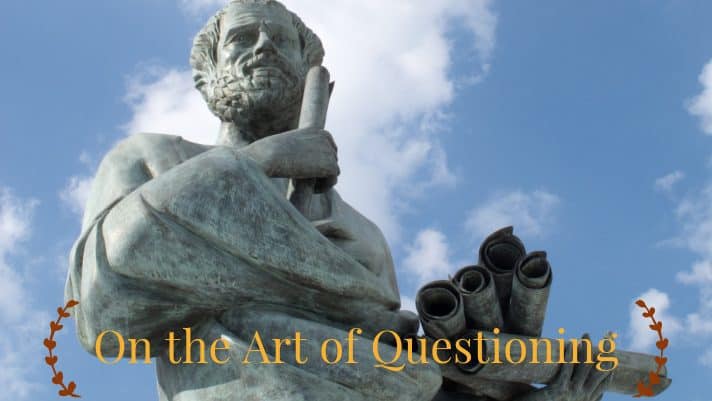On the Art of Questioning
This discussion took place at the end of our unit on Greek Government. Within, students were asked to support either Oligarchy or Democracy by taking the side of Sparta or Athens while creating an argument supporting each. This was our first Socratic Seminar of the year, and for the majority of our students their first exposure to the Socratic method.
The set up for this discussion was to divide the room into three parts. Students would either sit in the Spartan, Athenian or undecided section.Students had been allowed to do research the previous class, and had written one question and one argument relevant to the conversation. Students who were undecided had been asked to be active inquirers, to make up for the fact they did not have to defend a Polis. Students were not locked into their choices, and could switch sides at breaks in the discussion. The class would end with a vote, based off of student support for Athens or Sparta, our own fictional City state would chose to follow either a Democratic or Oligarchic form of government.
The discussion changed with each period though there were several commonalities. First, it became readily apparent that the the teacher must act as an active mediator, to ensure only one student was speaking at once, and to enforce discussion norms. With the more exuberant students dominating the discussion, it also becomes important to encourage quiet students. A strategy I appreciated was encouraging students to work in pairs, this allowed one of the two to act as the spokesperson and ensured all students took part in the discussion.
Much of the value within this debate, came from setting students up for future Socratic seminars. Though it initially proved a tad chaotic, for their first formal academic discourse the students seemed engaged, and were thinking about the material. In the future, I would like to make the discussion more accessible by granting more student aids and materials going into it. For though the majority of students participated, it seemed they were almost performing a distasteful duty for a grade rather than engaging meaningfully with the material. As we continue to have Socratic seminars throughout the year, it is going to be interesting to track students progress and monitor their engagement.

